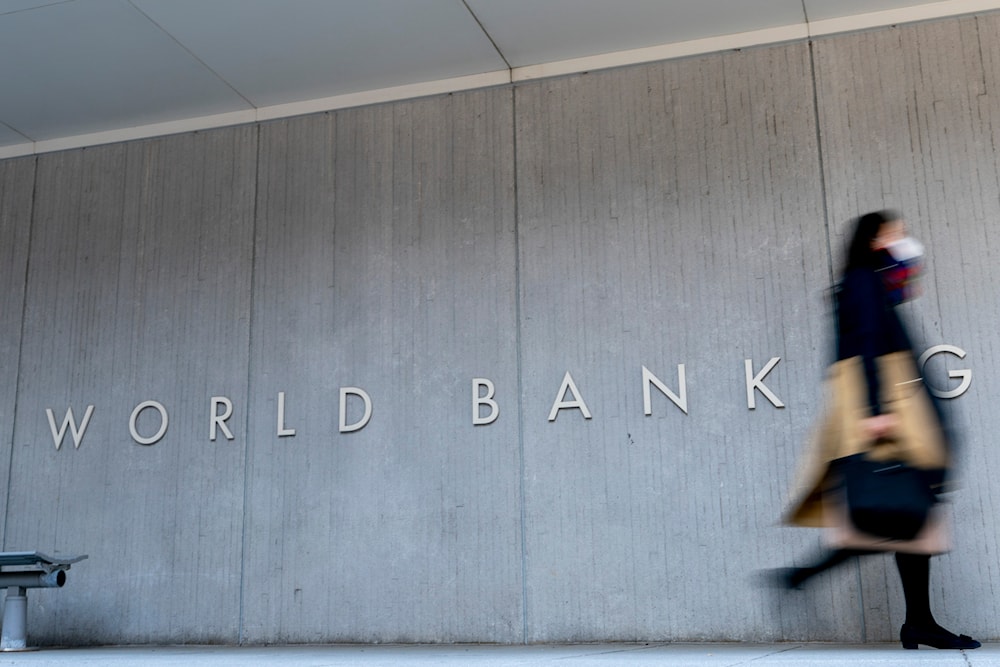World Bank approves $700 mln in financing for Egypt
The World Bank announces the provision of financing worth $700 million to support the Egyptian budget within the framework of the Development Policy Financing (DPF) program to enhance Cairo's economic stability.
-

The World Bank building, Monday, April 5, 2021, in Washington. (AP)
The World Bank announced on Monday the approval of a financial package worth $700 million for Egypt, part of a three-year $6 billion program that the bank pledged earlier this year.
The World Bank said, in a statement, that the $700 million is expected to aid in raising the participation of Egypt's private sector, and ensure macroeconomic and fiscal resilience, and a greener growth trajectory.
Earlier this year, the World Bank announced on March 18 its plans to provide Egypt with $6 billion in financial support to assist the country with its development priorities.
"Over the coming three years, the World Bank Group intends to provide more than US$6 billion of support to Egypt," a statement published by the World Bank read, noting that the package comprises "US$3 billion for financial support to Government’s programs and US$3 billion for the private sector (including mobilization) – subject to Board approval."
El-Sisi to maximize Egypt's economic efficiency
After winning a third term in April, Egyptian President Abdel Fattah el-Sisi promised to boost the country's economic effectiveness and adaptability.
In a keynote address, el-Sisi laid out the aims of his new six-year term, promising to "adopt strategies that maximize Egypt's economic capabilities and resources, and enhance the solidity and resilience of the Egyptian economy in the face of crises."
The president also stated that he would seek "sustainable and balanced" economic growth, supported by a larger private sector, as well as increased contributions from agriculture, industry, technology, and tourism.
He added that this is additional to expanding agriculture to attain food security for the country "attracting more local and foreign investments to generate millions of sustainable jobs, while giving priority to local manufacturing programs to increase exports and Egypt’s foreign exchange earnings."

 2 Min Read
2 Min Read








